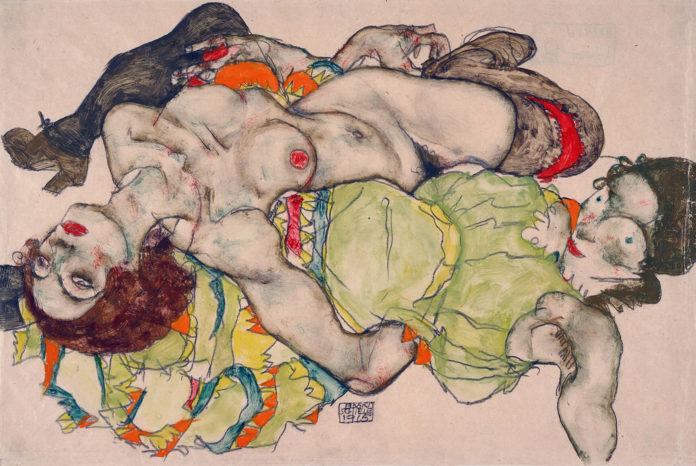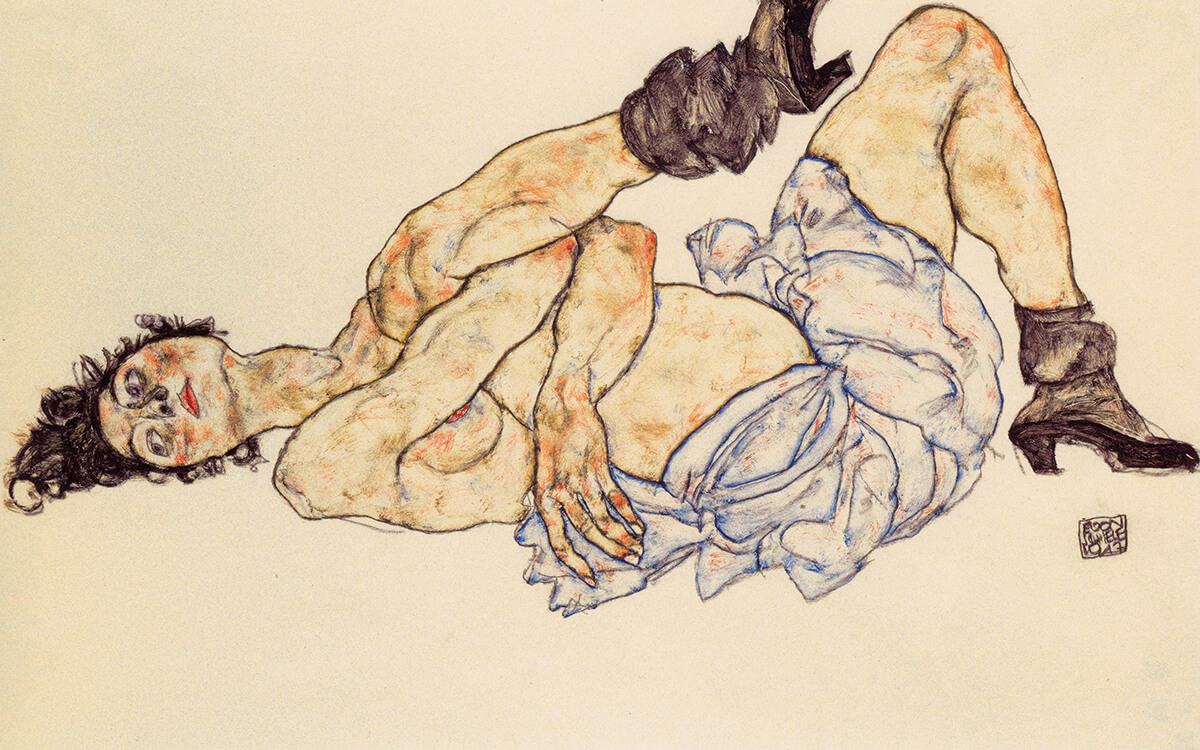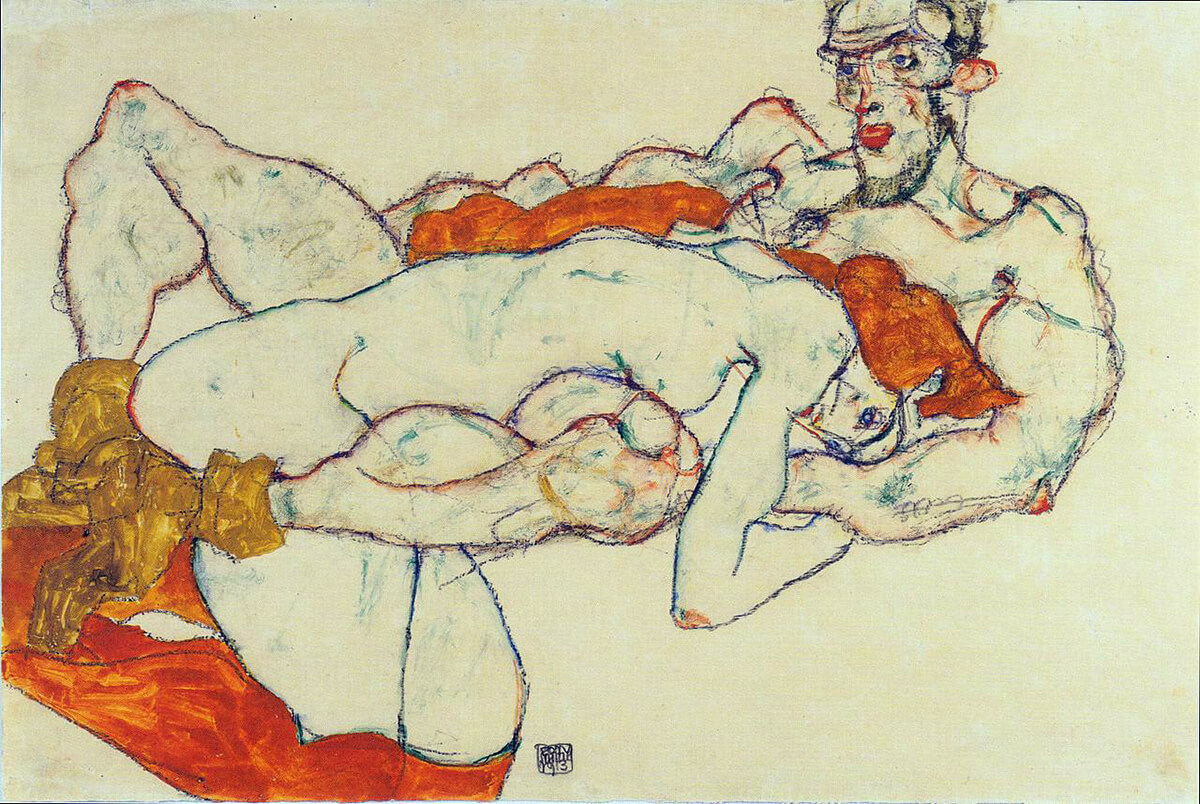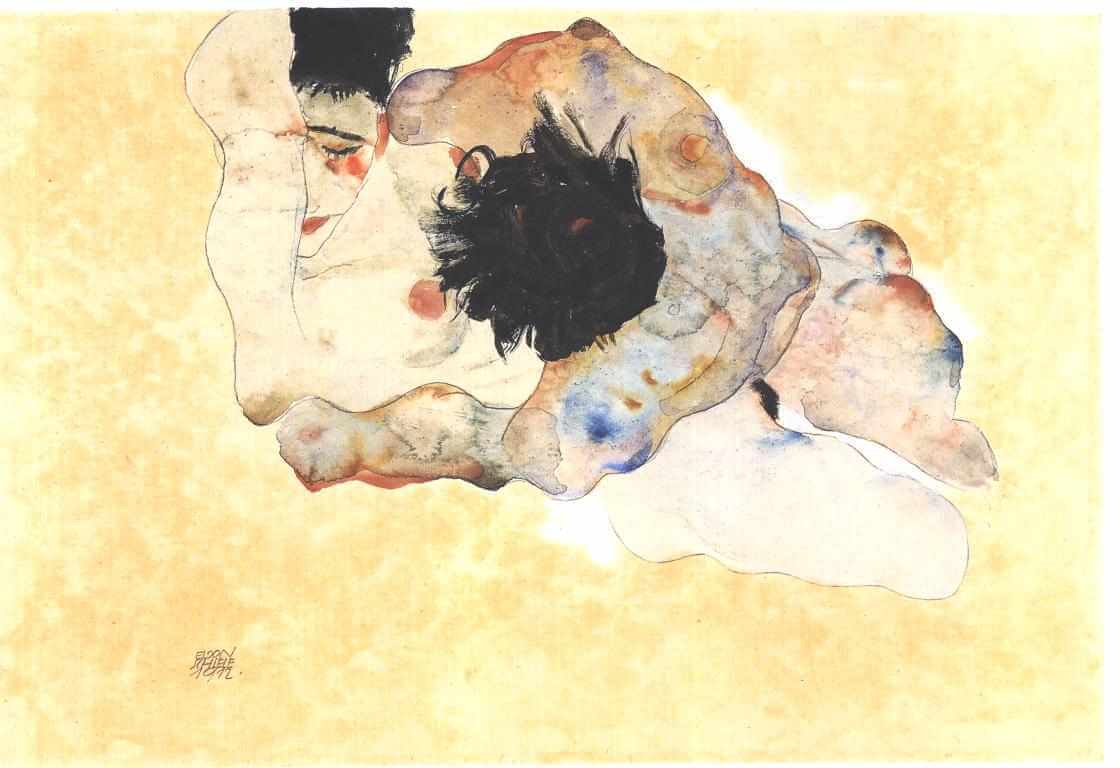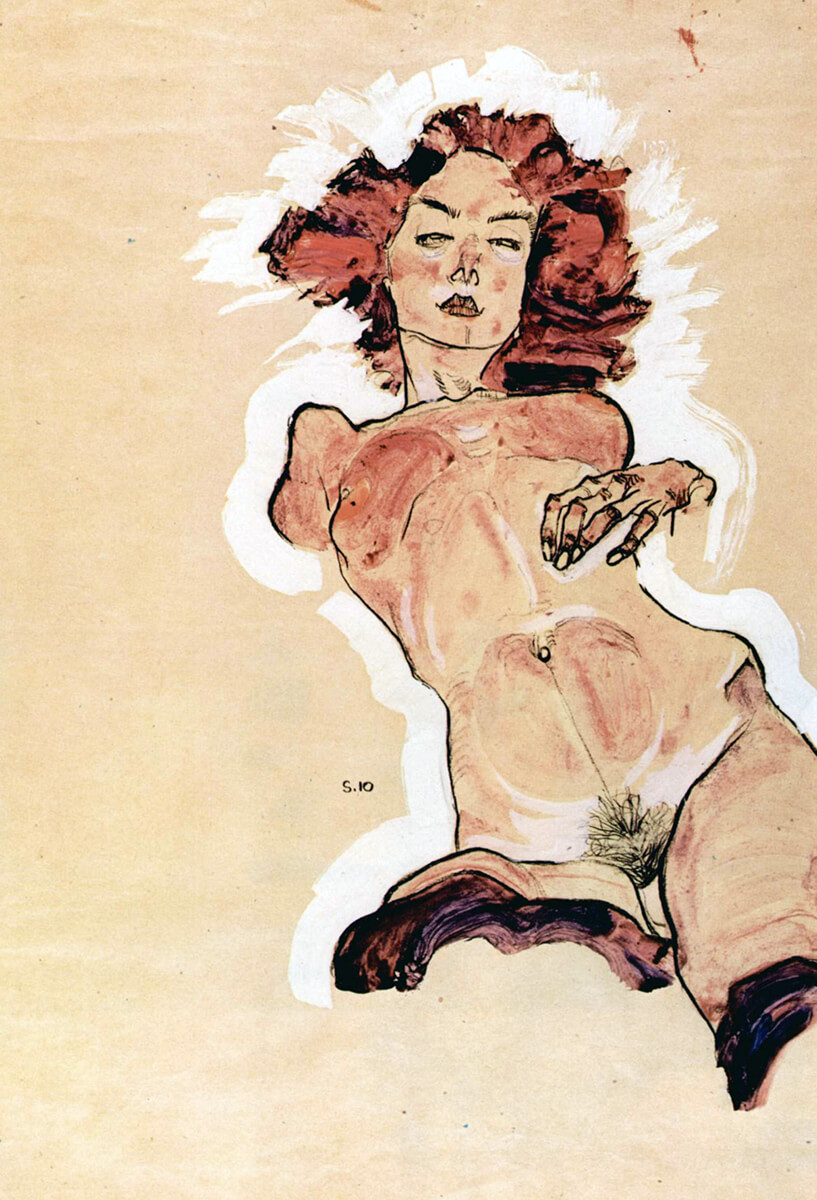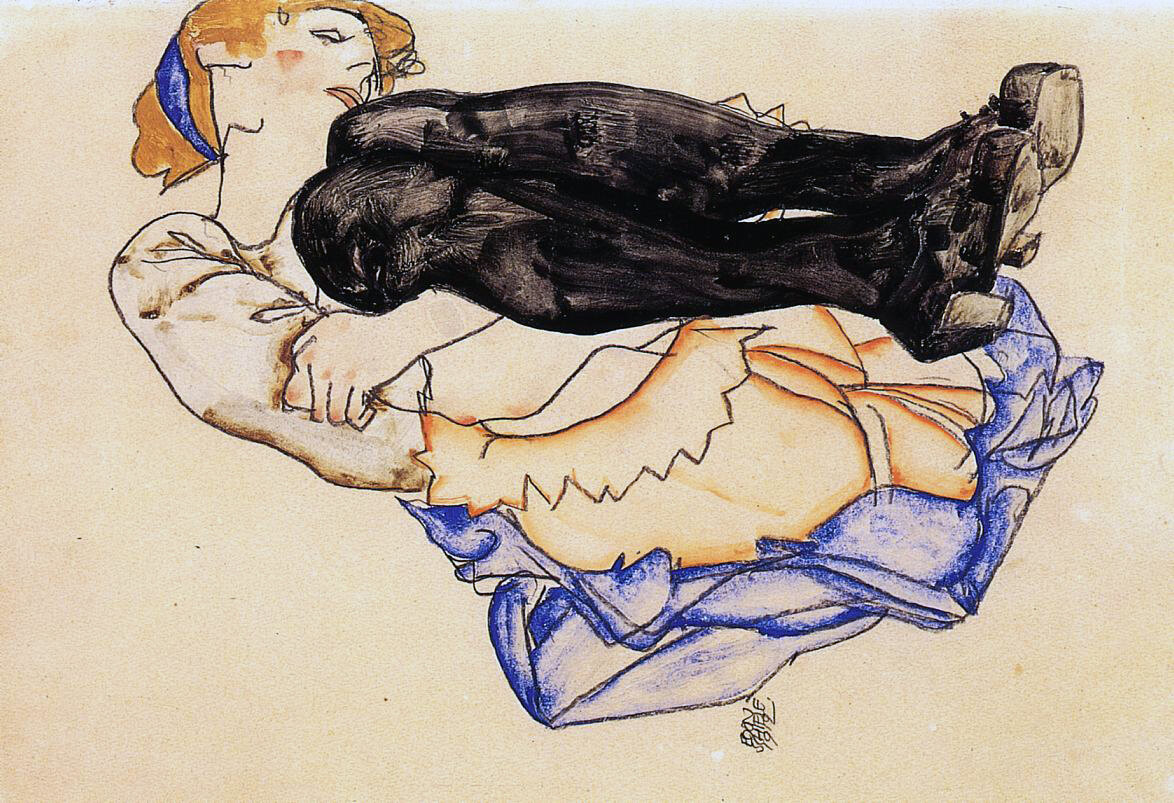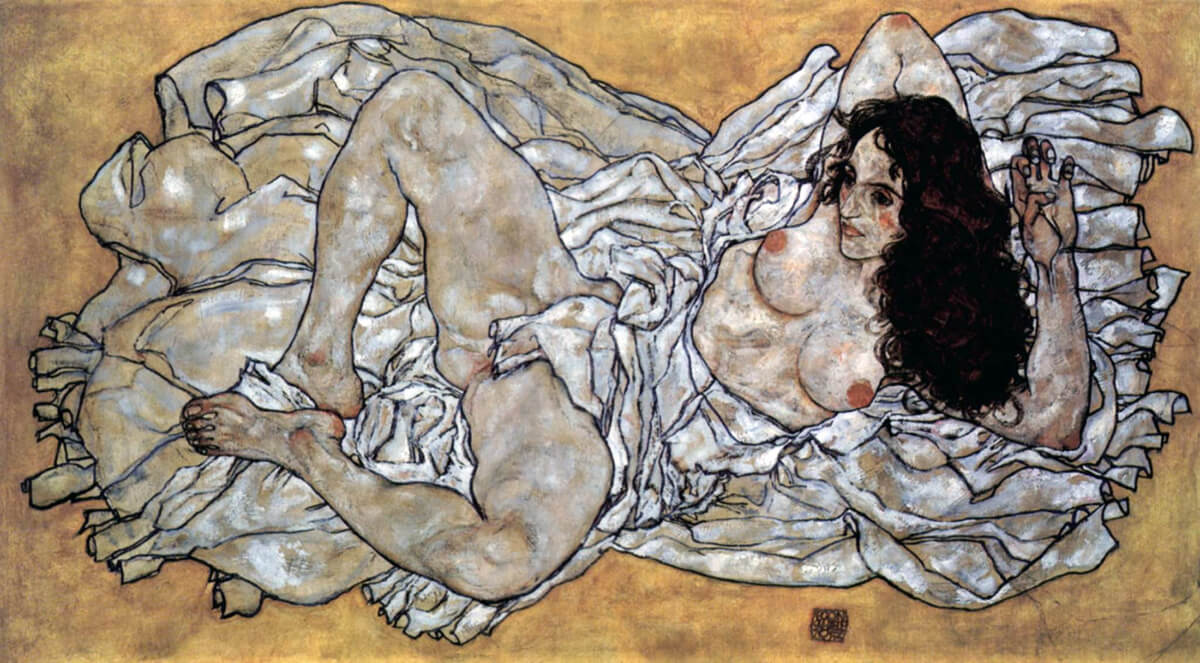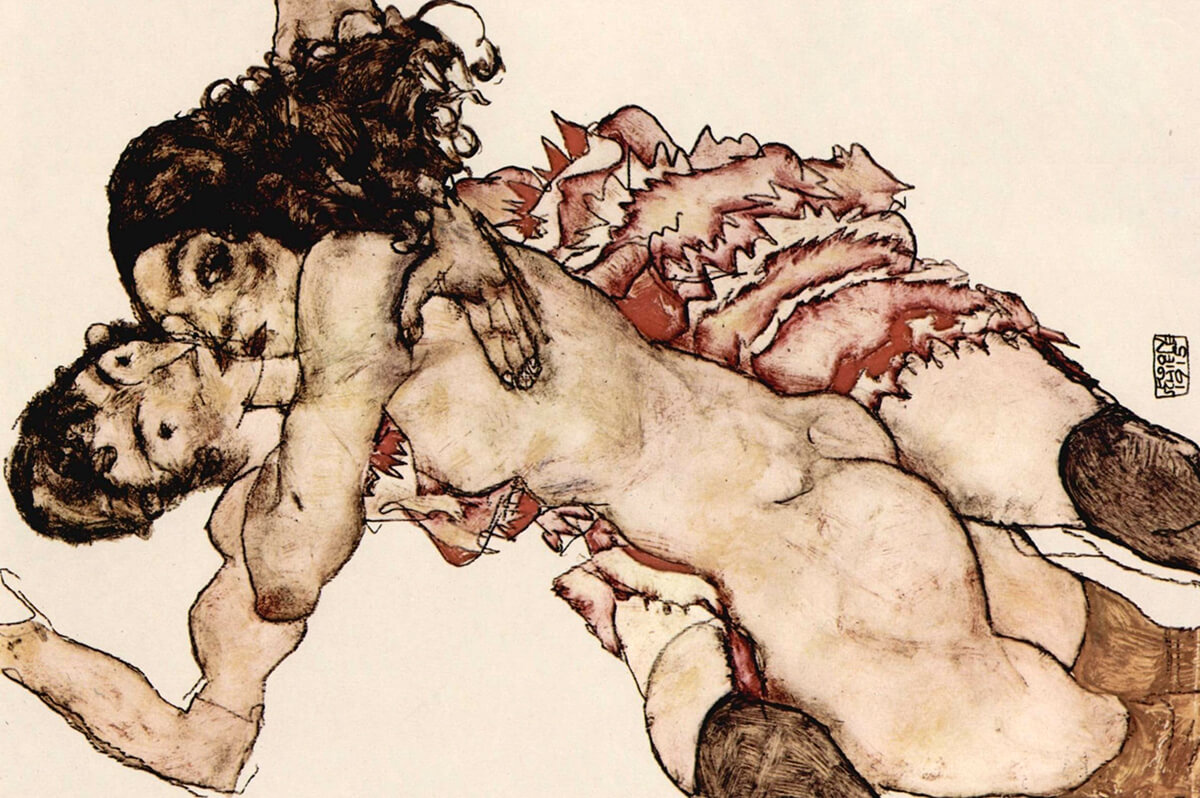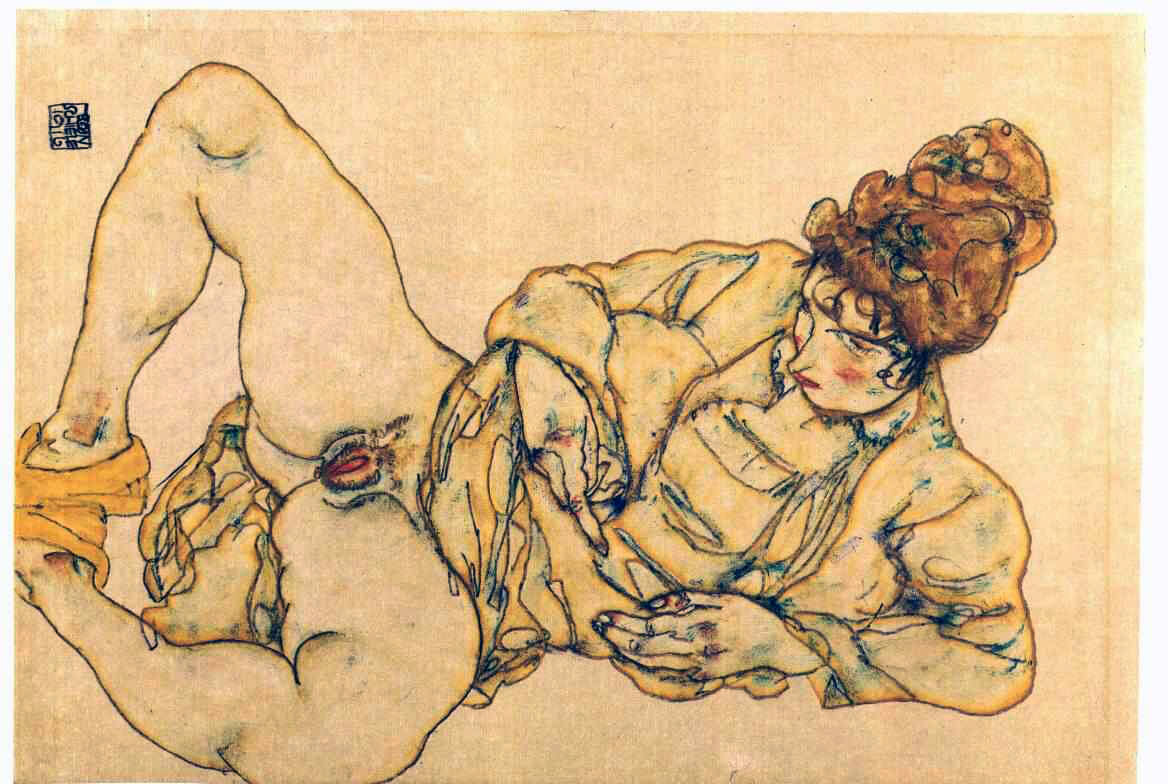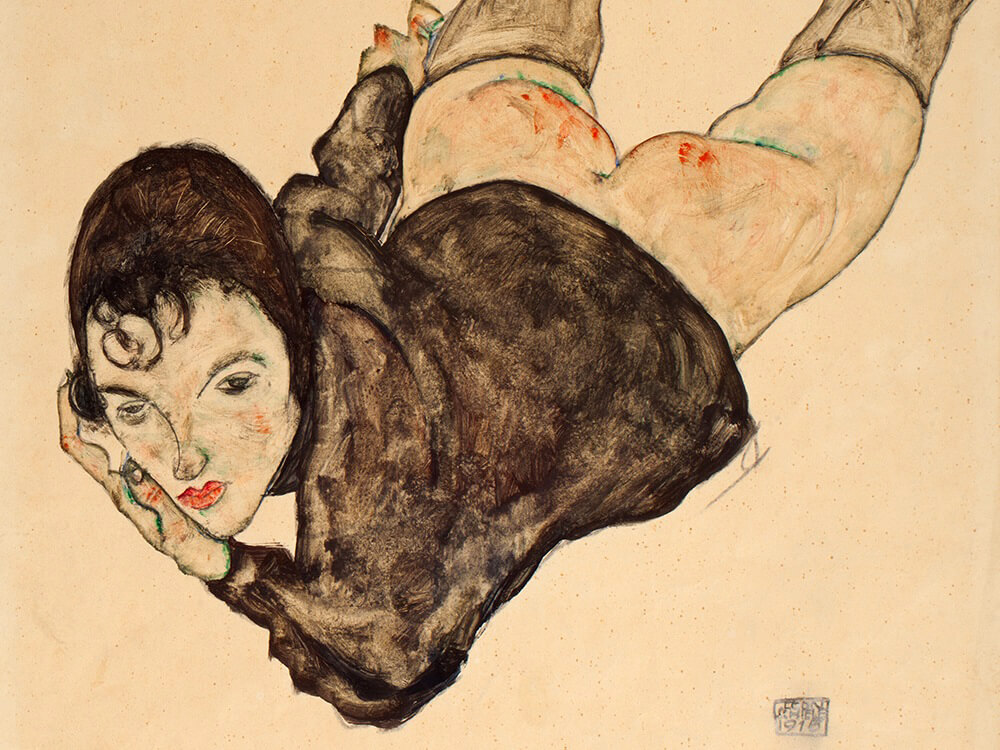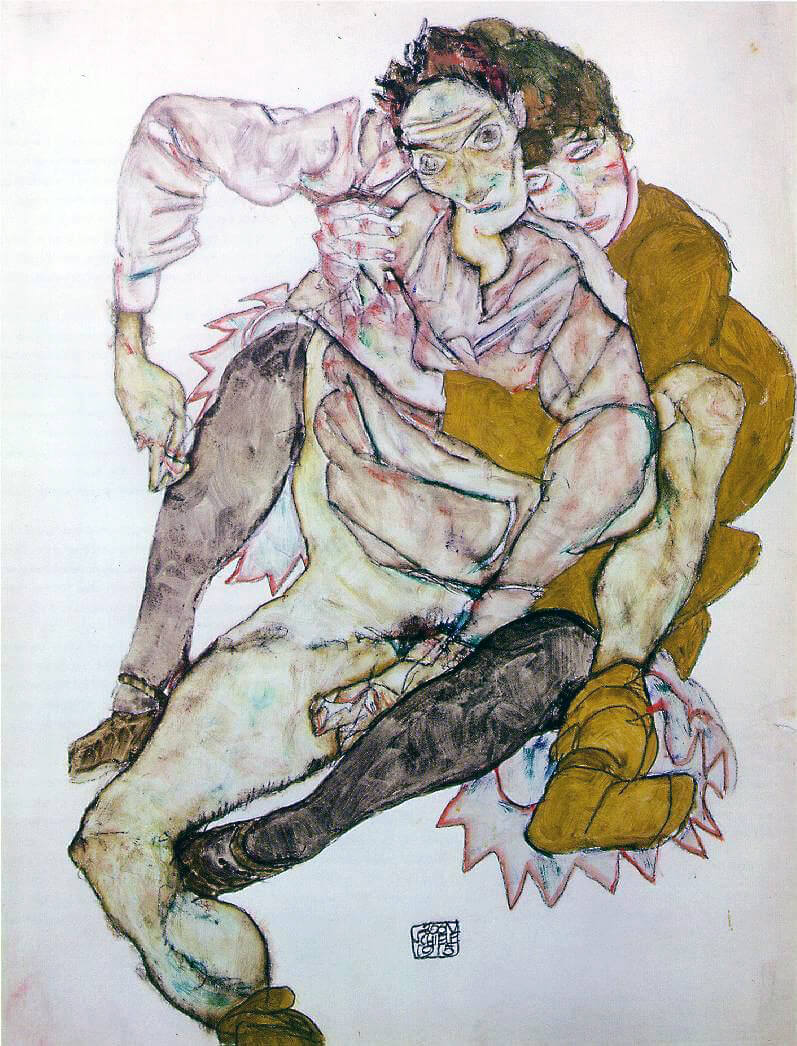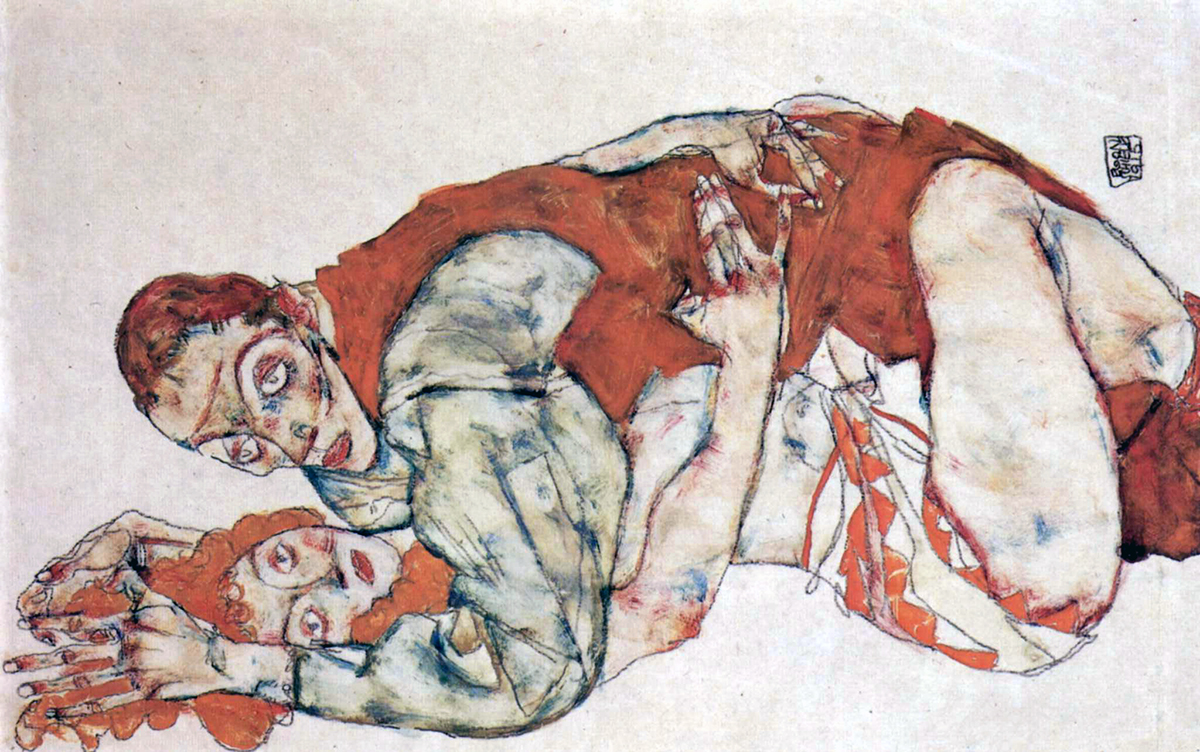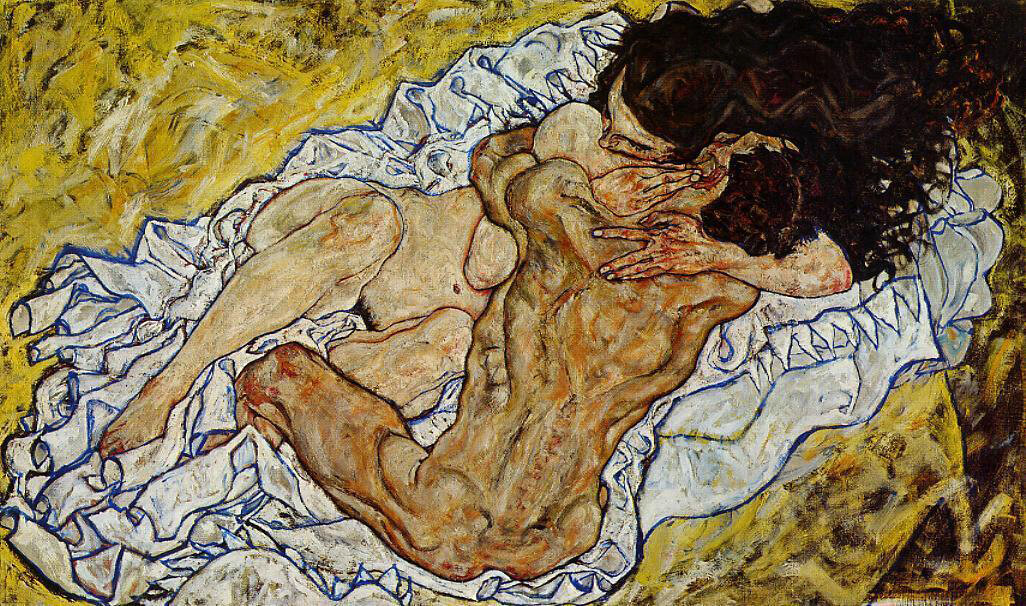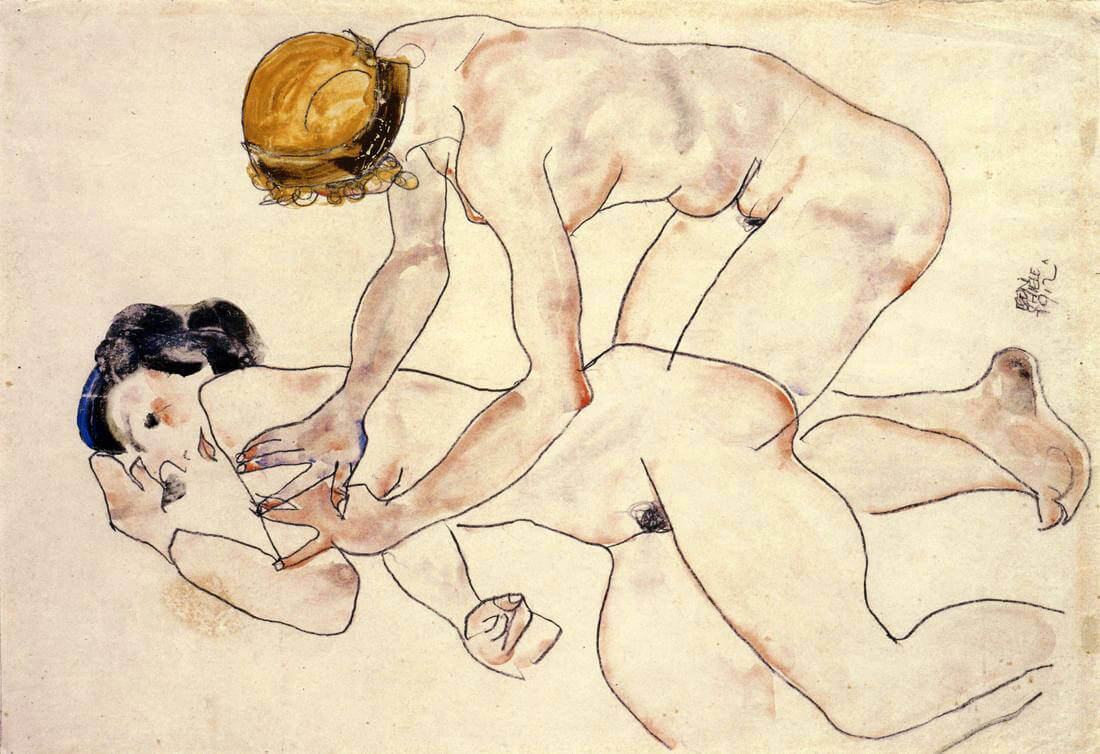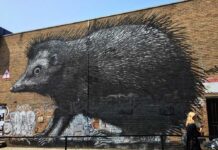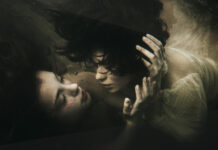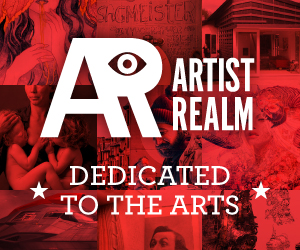“No erotic piece of art is obscene if it has an artistic significance; only observants can make it vulgar”. Egon Schiele
”Whoever wants an explanation to an artistic work should not be listened, they are too poor to understand”. Egon Schiele
Son of Austrian station master with mental disorders, an orphan at the age of fifteen, Egon Schiele (1890 – 1918) is known to be one of the best drawers even though his poor and brief life,; in fact, he died at the age of 28.
Schiele embodied the symbol of an artist misunderstood and schizoid; at the age of 16, Schiele became the youngest pupil of the conservative Academy of Fine Arts of Vienna, which he left soon after to found a group of artists called Neukunstgruppe (new art group), becoming familiar with the world of artist’s cafè, location in which the brand new avant-garde trends was born.
Schiele and the Vienna Secession In Vienna, at Café Museum, he knew Gustav Klimt, leading figure of Vienna Secession, who recognize Schiele creativity and presented to him the representational art technique. Schiele got passionate about Klimt’s female nudes characterized by eroticism.
Klimt generously mentored younger artists and he took a particular interest in the gifted young Schiele, buying his drawings, offering to exchange them for some of his own, arranging models for him and introducing him to potential patrons. He also introduced Schiele to the Wiener Werkstätte, the arts and crafts workshop connected with the Secession. In 1908, Schiele had his first exhibition in Klosterneuburg. Schiele left the Academy in 1909, after completing his third year, and founded the Neukunstgruppe (“New Art Group”) with other dissatisfied students.
“An artist is the expression of his age, reveals a fragment of his own life. And he always does it through a deeply lived experience”. Egon Schiele
Soon he left behind the Secession ornamentalism to create, as Kubin and Kokoschka, his own new personal style: Fauve and eventually expressionist use of color, he reduces spontaneous and individual components to a collective validity, a dramatic and strong line to underline his major interest in shape and structure, in order to pitch the newly acquired awareness of 20th century man. The Art Nouveau and its refined erotism in opposition with the rude representation of sex. However, at the time, the bourgeoisie found his works scandalous and upsetting.
In 1911, he started an affair with Wally Neuzil, who was seventeen at the time, and, along with some of its pornographic drawings found in his apartment, were the cause of his arrest with the charge of sexual assault, seduction, and abduction of a minor.
Schiele and his trial Schiele was imprisoned while awaiting his trial. When his case was brought before a judge, the charges were dropped, but the artist was found guilty of exhibiting erotic drawings in a place accessible to children. In court, the judge burned one of the offending drawings.
In his jail diary, Schiele wrote: “During the hearing, one of my seized drawing, the one hang up on my bedroom wall, was solemnly burned on a candle flame by a dressed up judge in his toga! Autodafé! Savonarola! The Inquisition! Middle Ages! Castration, hypocrisy! So go to a museum and cut in little pieces all the grait masterpieces of art. Whoever repudiates sex is a dirty man that vulgarly defames his parents who gave him birth”.
Schiele was extremely transgressive: Wally Neuzil and marvelous drawings of sweet nude girls, seductive women dressed just with black stockings and boots. In a self-righteous Austria, Secession artists like architects Otto Wagner and Adolf Loos, painters like strong>Klimt and Kokoschka, philosophers like Sigmund Freud created an underground and open minded culture, free from taboos and willing to look into the human psyche.
Schiele also wants to sound out, with pencils and brushes, human souls. He wants to explore the abyss of physical and spiritual impulses, paints them in those bodies, skinny but sensual.
In 1915, three days after his wedding with his new muse and model Edith Harms, Schiele was ordered to report for active service in the army; he was initially stationed in Prague where was able to continue painting and sketching while guarding Russian prisoners of war and doing light guard duties. Thanks to Klimt support and his work reflecting the maturity of an artist in full command of his talent, he was invited to participate in the Secession’s 49th exhibition, held in Vienna in 1918 and also in Zurich, Prague, and Dresden.
So it arrived the earned success, being worship by art critics, especially after Klimt s death.
In the autumn of 1918, the Spanish flu epidemic reached Vienna and Edith, who was six months pregnant, succumbed to the disease on 28 October. Schiele died only three days after his wife. He was 28 years old.


